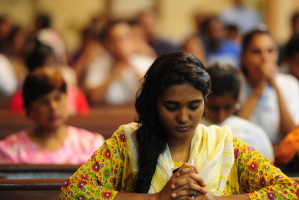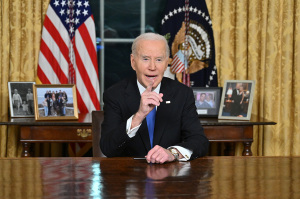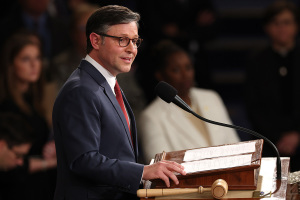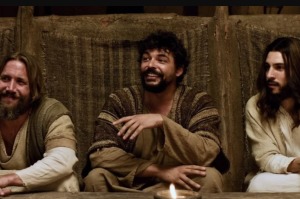Pakistan's oldest seminary removes chairman amid accusations corruption
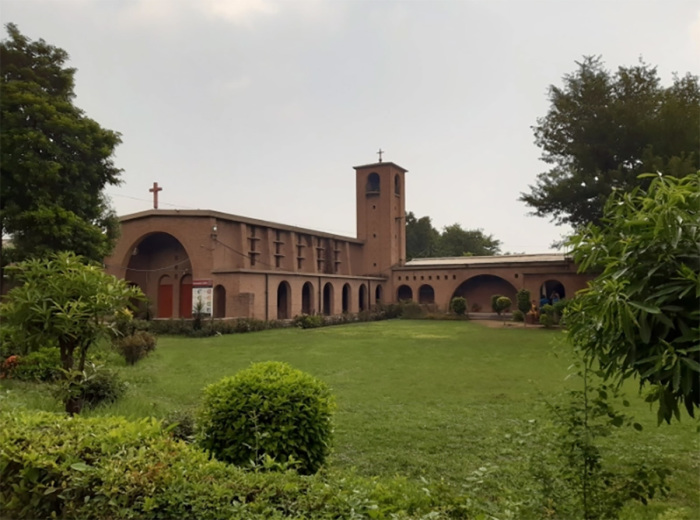
The chairman of the Board of Directors of Gujranwala Theological Seminary, Pakistan’s oldest seminary, has been removed from his position over allegations of financial corruption and gross irregularities in a building project, and alleged illegal and unconstitutional actions that have damaged the operations of the institution once known as the cornerstone of theological education in the subcontinent, Christian Daily International has learned.
The seminary, commonly known as GTS, was founded by United Presbyterian missionaries from North America in 1877 to train national pastors in accordance with scriptural and creedal principles generally recognized as Evangelical and in accordance with Reformed Theology. Since 1954, the seminary has been serving the Presbyterian Church of Pakistan (PCP), the United Church of Pakistan, the Associate Reformed Presbyterian Church, and other churches.
According to its official website, the seminary has graduated 12,280 pastors who are serving churches in Pakistan and other parts of the world.
Investigation finds questionable practices in building project
An extraordinary meeting of the board on Jan. 2, presided over by the former vice chairman, Bishop Humphrey Peters of Peshawar Diocese and attended by three other bishops of the Church of Pakistan and representatives from the Presbyterian Church of Pakistan (PCP) and Associate Reformed Presbyterian (ARP) Church, considered the findings of an independent review conducted by the seminary’s management of the project of a new academic block.
The review report prepared by Tariq Haneef & Co Chartered Accountants, a copy of which was reviewed by CDI, makes startling revelations regarding the project funded by donations raised from the U.S. and other sources.
According to the report, the project was carried out unilaterally by the former chairman, Presbyterian Pastor Reverend Majid Abel, without the board’s written approval.
“Instances were noted that no formal approved budget plan for the project was available neither any formal implementation plan, including execution timelines, milestones, or monitoring mechanisms, were developed. It was observed that donations were received in accounts not formally approved for the project, including the chairman’s personal accounts, with no supporting agreements or evidence of fund transfers,” a summary of the report made for the board members states.
The report also revealed a clear conflict of interest involving the contractors and the former chairman.
“It was identified that the contractors Mr. Tariq (the owner of WISHZ Builders) and Mr. Ashraf (the owner of DAWOOD Builders) were the real brothers of the chairman and also the companies were on the name of their children. The chairman has made sole decision and did not involve the management while giving the contracts. This connection raises concerns regarding impartiality and the transparency of the contracting process,” the report noted.
According to the finding's, DAWOOD Builders was paid an amount of 9.1 million Pakistani Rupees ($32,714) between March 2022 and June 2023, but the seminary doesn't have any records, such as original invoices for the payments made to him. Similarly, WISHZ Builders was paid 3.4 million Pakistani Rupees ($12,170) between August 2023 and March 2024.
“The absence of original bills or invoices suggests that payments made to the contractors may have been fraudulent,” the report noted.
The report also points to absence of any formal agreement between GTS, Presbyterian Education Board (PEB), Friends of GTS (FGTS) and other donors regarding the funding for the project. Moreover, the funding transaction channel adopted by the chairman was not authorized by the board and significant discrepancies were found in the recording and management of the donations meant for the project.
Two receipt books were used for recording donations, including one printed by GTS and the other allegedly illegally printed by Rev Abel, which raises concerns about the integrity and transparency of the donation process, the report said.
This points to possible financial misappropriation by the chairman who, on one hand, was raising and receiving funds for GTS, but on the other hand was giving the money as loans to the seminary, which were subsequently reimbursed to him [from donations received from FGTS and other donors].
Unusual loans by the chairman with no explanations of origin
The report goes on to reveal that Abel, who was also the sole international fundraiser for the seminary since assuming the position in 2019, had given loans amounting to 16.2 million Pakistani Rupees ($58,000) from July 2022 through March 2024 from his personal bank account to the seminary for administrative expenses and building construction.
According to record, the seminary has repaid him 12.9 million Pakistani Rupees ($46,427) from the donations it received from the FGTS and other donors, while 3.2 million Pakistani Rupees ($11,500) were still outstanding. The repayments, however, were not documented, which "raises the concern that he may claim the same amount many times."
Furthermore, the loan amount given by the chairman surpasses the funds that FGTS has sent to the seminary specifically for the construction project.
According to the report, the seminary’s accounts from July 2022 through March 2024 show that a total of 28.7 million Pakistani Rupees ($103,000) were received in shape of donations and loan for the construction project from FGTS and other donors between July 2022 and March 2024, of which 14 million Pakistani Rupees ($40, 942) were loaned by Abel alone, of which 10.6 million Pakistani Rupees ($37,965) were repaid to him.
CDI repeatedly contacted PEB Executive Director Veeda Javed, also a member of the GTS board, as well as FGTS' Executive Director, the Rev. Robert Johnson, via email, text messages and calls for their comments on the issues highlighted in the report, but they did not respond.
Chairman challenges his removal, calling meeting 'illegal'
A resolution passed by the board members stated that in view of the report’s findings, Abel has been removed from the position with immediate effect and barred from representing the seminary at any forum.
The meeting's participants then elected three new office-bearers to replace the chairman, vice chairman and treasurer. A Presbyterian pastor from Faisalabad, the Rev. Emric Joseph, was unanimously elected as the new chairman, along with Elder Naveed John Bhinder as the vice chairman, and Elder Wilbur John as the treasurer.
Calling the meeting that removed from his position “illegal,” Abel told CDI that as per the GTS constitution, only the board’s chairman could call a special meeting of the board.
“Five members of the board had written to me asking for holding a special meeting of the board in view of the principal, the Rev. Nosheen Khan’s negative activities, which were detrimental to the seminary. I issued notices for a special meeting on Jan. 4 which terminated her services and appointed me as the acting principal,” he claimed.
CDI has learned that the principal, who is also the executive secretary of the board, had drawn Abel’s ire for writing letters to board members and donors complaining about his alleged corruption in the building project and micromanagement of the seminary’s day-to-day affairs, seeking their intervention.
According to Abel, the office-bearers of the board could only be changed in the annual board meeting, which is held in March. “I’m still the legal chairman of the board and the decisions taken in the ‘illegal’ meeting held on Jan. 2 have no effect,” he reiterated.
However, CDI has learned that the board headed by Abel has been declared infructuous by the relevant Punjab government department as it had not filed its renewal application last year. Meanwhile, the department has admitted the principal’s application for registration of the new board of directors.
Responding to questions regarding the irregularities in the execution of the project highlighted in the review report, Abel did not deny the contents of the report but said the report was not authorized by "his board."
“The board did not authorize this report so it has no value. The building is standing there so I don’t see the reason behind this controversy. Khan and some others are targeting me after I asked a board member to step down due to a controversy over his graduation degree,” he claimed.
When asked why he had delegated the construction work to his own brothers without calling for open proposals as per the market principle, Abel said that the seminary did not have the money to hire any other contractor.
“The seminary’s classrooms are in a dilapidated condition and no development work has been done there in the last 70 years. A new academic block was much needed and everyone, including the principal, supported the project. If the principal or others were opposed to my brothers’ involvement, why did the management keep paying them for the work?” he said.
Abel, who is also the executive secretary of one of the factions of the fragmented PCP, was at a loss of words when asked to explain how he was giving such huge loans to the seminary and making frequent visits to the U.S., sometimes even twice a month, when his only known source of income was his pastoral salary and benefits, which, according to church sources, doesn't exceed $1,000 per month.
“I’ve many sources of income but I’m not obliged to disclose them,” said the pastor.
Longstanding issues: lack of transparency, no documentation, absolute authority
CDI has found that the building project lacked transparency from the onset.
The board members, including some senior bishops of the Church of Pakistan and leaders of the Presbyterian church, among others, ostensibly acted as mere rubber stamps largely oblivious to the manner in which Abel was singlehandedly executing the project.
Insiders told CDI that the chairman had the support of the principal and some board members when he expressed his desire to start the building project.
Khan admitted that she had supported Abel’s decisions but insisted that everything she did was in “good faith” and in the “best interest of the seminary.”
“The seminary has been struggling for finances for years, so when Abel offered to raise funds for it with help from his American friends, we agreed to his proposal. I had no idea then that the seminary’s name would be misused by Abel to make a personal fortune and the foreign funds would become a leveraging tool for perpetuating his control over the institution,” she said.
According to the principal, her relations with Abel started deteriorating in 2023 after she refused to employ his female relative in the seminary and give an honourary MDiv degree to a close friend.
“He also wanted me to give him a faculty residence, which I denied after which his attitude towards me became very aggressive,” she alleged. She added that on April 9, 2024, Abel unilaterally suspended her administrative powers without the approval of the board and executive committee and started micromanaging the seminary's affairs.
According to Khan, though she’s a member of the FGTS board, she has no knowledge of how much funds they or Abel have raised for the seminary other than the money sent to the seminary through the PEB.
“The entire matter of fundraising and building construction was solely dealt by Rev. Abel and no one else from the management was in the loop except a former female accountant who reported directly to the chairman,” she said.
Khan claimed that whenever she demanded the required documents, Abel told her that the donors do not like such demands and they could stop the funding. “He even threatened to hinder the 2024 graduation ceremony if I raised this matter before the donors,” the principal said.
Explaining why the seminary couldn’t receive foreign funds directly in its bank account, Khan said that the institution hadn’t yet been able to register itself with the Economic Affairs Division (EAD) of the Pakistan government.
“Without the EAD’s approval, no charity or non-government organization can receive foreign funds,” she said. We also have no information as to what explanation the PEB has given to the EAD regarding the funds it is receiving on behalf of GTS, she added.
Responding to Abel’s claim that the review report was unauthorized, Khan said that the board’s Finance Committee in its meeting held in June 2024 had decided to conduct an independent review of the construction project. “This decision was recorded in the minutes of that meeting so how can Abel call it unauthorized?” she asked.
Rejecting the Abel-led meeting’s decision to terminate her as principal, Khan said that she is continuing to hold her office.
“As head of the institution, it was my moral responsibility to call the special meeting on Jan. 2 to apprise the board members about the former chairman’s corruption and unconstitutional actions. I’ve the full support of my faculty and board members and we’ve already commenced the session with the blessings of our new chairman.
“In fact, the students and faculty are very happy that the board is now being led by a pastor who is known in the church for his impeccable character and love for Christ,” she said.
A board member confirmed to CDI that they had not seen or approved any contract, MoU/TOR or other document related to the building project.
“We did get verbal briefings about the progress of the project but nothing was shared with us in writing. It has always been a tradition in the GTS Board that no document is shared for the board members’ perusal,” said the board’s former vice chairman, Bishop of Multan Diocese Leo Roderick Paul.
Bishop Paul said the non-Presbyterian board members were often told that they couldn’t question the source of funds because they weren’t contributing to the project. “We only give a paltry amount to support the seminary so we didn’t really push for details,” he said.
According to Bishop Samuel Robert Azariah, a former moderator of the Church of Pakistan and the director of the Christian Study Center, the McIntire movement's arrival in Pakistan in the 1970s had a devastating impact on the Presbyterian Church, GTS and the church in general.
“Since then, the institution has struggled with negativity, fragmentation, nepotism, and injustice, ultimately compromising its vision. Instead of producing disciples of Christ, GTS began turning out church politicians and hypocritical religious zealots,” Bishop Azariah told CDI.
The senior bishop said that the Presbyterian church's significant influence over GTS has led to church politics and fragmentation, causing division and mistrust among board members.
“To move forward, GTS requires reforms, including new leadership in the board and administration to ensure financial, administrative, and institutional transparency. The seminary must return to its original vision of producing disciples of Christ, rather than church politicians. It's essential for church leadership to step aside and allow new leaders to take responsibility. Ultimately, GTS is accountable for the church's poor leadership and witness,” he stressed.
This article was originally published at Christian Daily International
Christian Daily International provides biblical, factual and personal news, stories and perspectives from every region, focusing on religious freedom, holistic mission and other issues relevant for the global Church today.
















